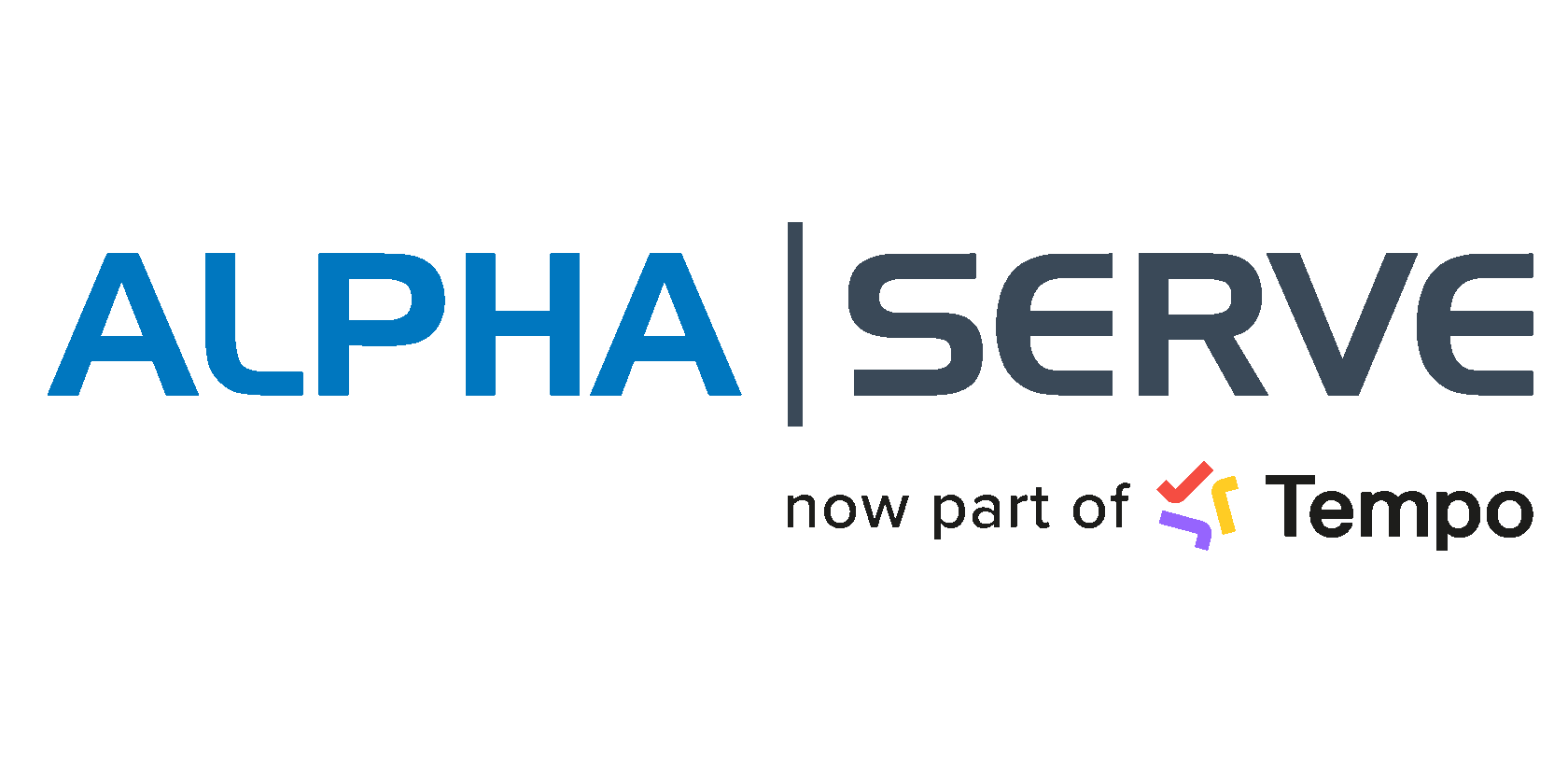Oracle Analytics: Products, Features, Pricing, Alternatives
Author: Liubov Topchyi
Support Team Lead at Alpha Serve
Published: May 23, 2022
Last Updated: April 26, 2024
Last Updated: April 26, 2024
Data is the lifeblood of the 21st-century business landscape. Every day, business operations generate tons of data that are valuable in making strategic and tactical business decisions.
To fully leverage these different datasets, businesses of all sizes often turn to business intelligence software like Oracle Analytics to better analyze, visualize and manage data.
BI tools like Oracle Business Analytics have features that help businesses understand data trends and derive valuable data insights generated from their internal and external systems. Oracle Analytics provides a comprehensive suite of analytics solutions that can help companies understand and use data better. In the BI software market, there are loads of other analytics tools that have similar features offering these same benefits.
In this article, we review the Oracle Analytics products and their features. We’ll also compare the platform to other popular BI tools that may serve as an alternative. This will help you determine if Oracle reporting and analytics solution is right for you and to see what other options are available.
To fully leverage these different datasets, businesses of all sizes often turn to business intelligence software like Oracle Analytics to better analyze, visualize and manage data.
BI tools like Oracle Business Analytics have features that help businesses understand data trends and derive valuable data insights generated from their internal and external systems. Oracle Analytics provides a comprehensive suite of analytics solutions that can help companies understand and use data better. In the BI software market, there are loads of other analytics tools that have similar features offering these same benefits.
In this article, we review the Oracle Analytics products and their features. We’ll also compare the platform to other popular BI tools that may serve as an alternative. This will help you determine if Oracle reporting and analytics solution is right for you and to see what other options are available.

Here’s what we’ll cover in this blog post:
Here’s what we’ll cover:
It is a table of contents. Click on the needed subheading and switch between parts of the article.
What is Oracle Analytics

The Oracle Analytics software is a complete suite of business intelligence solutions designed to meet the data processing, data presentation, and visualization needs of an organization. Oracle Analytics also offers tools for reporting and interactive self-service dashboards for performing deep analytical tasks needed for the day-to-day functioning of an organization.
The AI-powered platform is capable of handling company-wide data analytics beginning with data ingestion and modeling, to preparing, enriching, and visualizing data. It also has tools for collaborating on data processing and handling data governance.
Oracle analytics uses machine learning technology, natural language processing, and other AI technologies to power data analytics practices across an organization. The platform can be deployed in the cloud or on-premises which makes it a fast and easy path to increasing data-driven productivity across an organization.
The AI-powered platform is capable of handling company-wide data analytics beginning with data ingestion and modeling, to preparing, enriching, and visualizing data. It also has tools for collaborating on data processing and handling data governance.
Oracle analytics uses machine learning technology, natural language processing, and other AI technologies to power data analytics practices across an organization. The platform can be deployed in the cloud or on-premises which makes it a fast and easy path to increasing data-driven productivity across an organization.
Oracle Analytics Features and Benefit

Oracle Analytics offers users a broad range of business intelligence capabilities needed to seamlessly manage large data volumes. This includes flexible data storage and a range of other tools for deriving valuable data insights. Some of the core features of this platform are highlighted below:
Data Preparation
Data Preparation
Oracle Analytics allows analysts to ingest, cleanse, repair, and profile data sets using various algorithms in preparation for comprehensive analysis. This can save time and reduce errors in data processing quite considerably. Users can get a quick but comprehensive view of datasets with data quality insights that pick out anomalies that need to be corrected.
Data Flow
Data Flow
Oracle Analytics can be used to create intelligent data flow by transforming and aggregating data using machine learning models. The visual data flow created can be further enriched using this tool and saved on the Oracle Analytics storage database.
Data Visualization
Data Visualization
Data visualization is one of the core features of the Oracle Analytics tool. It offers features for visually exploring data and creating compelling stories with them. This can be done locally or in the cloud. With this tool, analysts can quickly discover signals in data, identify complex relationships between datasets and generate meaningful metrics in an easy-to-understand form.
An intuitive and robust dashboard helps to accelerate the data analytics process to quickly generate actionable information. It features a drag and drop interface that allows anyone to build interactive data visualization with no coding skills required.
An intuitive and robust dashboard helps to accelerate the data analytics process to quickly generate actionable information. It features a drag and drop interface that allows anyone to build interactive data visualization with no coding skills required.
Data Collaboration
Data Collaboration
Oracle Analytics provides a unified platform for managing an organization’s entire data front-end. This eliminates the need for multiple spreadsheet versions and provides seamless access for anyone to analyze data and collaborate in real-time with other members of their team. By providing open data source access, Oracle Analytics unifies an organization’s data from multiple sources, providing a complete and consistent view that makes data analytics more accurate.
Flexible Pricing
Flexible Pricing
To keep pricing simple and predictable, Oracle Analytics charges users based on consumption and not based on the features, services, or the number of roles they make use of. This makes it suitable for businesses of all sizes from small teams to large enterprises.
Data Security
Data Security
Oracle Analytics empowers data engineers, data scientists and business users to access and process data in a secured environment. Role-based visualization makes it possible to control “who” has access to “what”. The platform also has enterprise grade firewalls and secure protocols that help to maintain a layer of security on your data.
Overview of Oracle Analytics Products

Oracle provides a range of products that can be deployed on the cloud or on-premises to meet an organization’s data analytics needs. These products are suitable for businesses of all sizes and across various industries. Here is an overview of Oracle Analytics products and how they work.
Oracle Analytics Desktop
Oracle Analytics Desktop
Oracle Analytics Desktop makes it possible for users to run their data exploration and data visualization tasks directly on their PC with no server or cloud required. This is a simple software that enables quick exploration of local datasets and can be used for simple data analytics and investigation. The software can be downloaded as a standalone tool and installed directly on your PC or Desktop computer for free for non-production use.
Oracle Analytics Cloud (Oracle OAC)
Oracle Analytics Cloud (Oracle OAC)
As the name suggests, Oracle Analytics Cloud is an all-in-one cloud-based business intelligence platform. With OAC, users can connect data from multiple sources and perform various data processing operations on the data set from the convenience of a web browser on any preferred device. Not only is this more accessible, but Oracle Analytics Cloud is also easy to set up and is scalable since no physical infrastructure installation or system upgrade is needed to deploy the framework.
OAC is all the capabilities of Oracle Analytics accessible from the convenience of the cloud. This empowers organizations with all the AI-powered analytics functionalities they need to prepare, visualize, report, and analyze data seamlessly from a unified platform.
OAC is all the capabilities of Oracle Analytics accessible from the convenience of the cloud. This empowers organizations with all the AI-powered analytics functionalities they need to prepare, visualize, report, and analyze data seamlessly from a unified platform.
Oracle Analytics Server (Oracle OAS)
Oracle Analytics Server (Oracle OAS)
Oracle Analytics Server is designed for organizations that want to make use of Oracle Analytics capabilities but would prefer to have the framework deployed on-premises. This is particularly important for organizations in highly regulated industries or those already using multiple cloud architectures. With OAS, they’ll still be able to continue using their legacy systems for augmented data analytics, data visualization, and enterprise reporting functionalities.
Oracle Fusion Analytics Warehouse (FAW Oracle)
Oracle Fusion Analytics Warehouse (FAW Oracle)
Oracle Fusion Analytics Warehouse is a framework built upon the Oracle Analytics Cloud system and powered by the Oracle Autonomous Data Warehouse. Enterprises that make use of FAW start by deploying Oracle Application Clouds which they then expand by rapidly personalizing and extending it.
Oracle Fusion Analytics Warehouse makes it possible to load data from Oracle App Cloud into the Autonomous Data Warehouse from where OAS can be used to customize your data processing tasks accordingly. In addition to the data warehouse, users also get access to pre-built benchmarks, dashboards, and reporting capabilities all managed by Oracle.
Oracle Fusion Analytics Warehouse makes it possible to load data from Oracle App Cloud into the Autonomous Data Warehouse from where OAS can be used to customize your data processing tasks accordingly. In addition to the data warehouse, users also get access to pre-built benchmarks, dashboards, and reporting capabilities all managed by Oracle.
Oracle Analytics Alternatives + Comparison
Oracle Analytics Alternatives + Comparison

Enterprises looking for an alternative to Oracle Analytics will find that several competitors offer equally impressive features. Users may seek alternatives that are more user-friendly or offer unique features such as data discovery, predictive analytics, more integration options, and so on. The following are some other popular business intelligence platforms that you may opt for are mentioned below. But before considering the alternatives, you can try out Oracle Analytics Connector for Jira here.
Tableau
Tableau
Tableau is a business intelligence and data analytics software designed to help enterprises carry out instant data analytics and get rid of messy spreadsheets.
Tableau is one of the most popular BI tools out there adopted by businesses of all sizes from small teams to large global enterprises. The platform is currently being used by over 80,000 organizations with millions of users worldwide.
Part of what makes this platform so versatile is the possibility of adapting to various data management strategies and meeting different governance needs. The Tableau platform is quite powerful, yet it is so intuitive that people of all skill levels (including non-analysts) may find it useful for exploring and interpreting data. The platform uses visual tools and natural language processing to make data analytics more engaging for users.
Tableau is one of the most popular BI tools out there adopted by businesses of all sizes from small teams to large global enterprises. The platform is currently being used by over 80,000 organizations with millions of users worldwide.
Part of what makes this platform so versatile is the possibility of adapting to various data management strategies and meeting different governance needs. The Tableau platform is quite powerful, yet it is so intuitive that people of all skill levels (including non-analysts) may find it useful for exploring and interpreting data. The platform uses visual tools and natural language processing to make data analytics more engaging for users.
Databricks
Databricks
Databricks provide a unified platform for an organization’s complete data requirements. The platform is designed to synthesize data storage, security, and engineering by providing a reliable platform to manage enterprise data architecture quickly and efficiently.
One of the things that makes Data bricks so unique is the impressive range of integrations. The platform syncs with platforms like Amazon Web Services, Google Cloud, Microsoft Azure, and so on. This allows users to manage large amounts of data from different sources in the same place. It can also be used to manage data analytic deployments and train machine learning models to be used in AI apps.
Databricks simplify complex data processing tasks by creating an intuitive and interactive collaborative environment from which engineers, data scientists, and analysts can work together in real-time on data analysis projects.
One of the things that makes Data bricks so unique is the impressive range of integrations. The platform syncs with platforms like Amazon Web Services, Google Cloud, Microsoft Azure, and so on. This allows users to manage large amounts of data from different sources in the same place. It can also be used to manage data analytic deployments and train machine learning models to be used in AI apps.
Databricks simplify complex data processing tasks by creating an intuitive and interactive collaborative environment from which engineers, data scientists, and analysts can work together in real-time on data analysis projects.
Microsoft Power BI
Microsoft Power BI
This is a business intelligence solution from Microsoft, designed to help analysts transform raw data into valuable insights that can be used to make critical business decisions.
Pricing is one of the main advantages that Microsoft Power BI has over Oracle Analytics and many other business data management solutions. The platform is cheaper to use compared to Oracle Analytics. Pricing for Power BI starts at $9.99 per month while Oracle analytics costs about $16. This makes it particularly useful for small businesses looking for a robust but affordable BI tool.
With Microsoft Power BI, users get access to a unified environment where they can make use of their favorite Microsoft tools such as Microsoft Office, SQL Server, and Sharepoint and do on to power their data analytics effort. The platform also offers additional end-user features such as Power Pivot and Powerview which contributes to better data visualization, analysis, and collaboration.
Pricing is one of the main advantages that Microsoft Power BI has over Oracle Analytics and many other business data management solutions. The platform is cheaper to use compared to Oracle Analytics. Pricing for Power BI starts at $9.99 per month while Oracle analytics costs about $16. This makes it particularly useful for small businesses looking for a robust but affordable BI tool.
With Microsoft Power BI, users get access to a unified environment where they can make use of their favorite Microsoft tools such as Microsoft Office, SQL Server, and Sharepoint and do on to power their data analytics effort. The platform also offers additional end-user features such as Power Pivot and Powerview which contributes to better data visualization, analysis, and collaboration.
SAP Analytics Cloud
SAP Analytics Cloud
SAP Analytics Cloud is a business intelligence tool built into the HANA BI platform and provides a range of key data management and analytics tools for SAP business users. This all-in-one SaaS BI software allows users to collect and manage data from multiple sources thanks to integration with platforms like Microsoft SQL, Salesforce, ERP, and so on.
In addition to seamless data compilation, analytics, and reporting on a cloud-based system, SAP analytics also offer unique features such as predictive planning. This works by collecting and analyzing raw data and generating intelligent insights needed to make better business decisions. The platform can also be used to clean up data, identify errors and optimize datasets using advanced machine learning algorithms.
In addition to seamless data compilation, analytics, and reporting on a cloud-based system, SAP analytics also offer unique features such as predictive planning. This works by collecting and analyzing raw data and generating intelligent insights needed to make better business decisions. The platform can also be used to clean up data, identify errors and optimize datasets using advanced machine learning algorithms.
Notable mentions:
- Qlik Sense
- Salesforce Analytics cloud
- Zoho Analytics
- SiSense
- DOMO
Conclusion
Conclusion
Oracle Analytics is an AI-powered Business Intelligence solution with robust data analytics and reporting features. The platform is designed to help businesses of all sizes transform their understanding of data and how they make use of it. While there are several great alternatives, Oracle Analytics is no doubt one of the best BI tools that can help businesses visualize data intuitively. This all-in-one platform can help them generate valuable insights to guide their business decisions or make accurate forecasts.
Subscribe to the Alpha Serve blog
Stay up to date with different topics related to project management, agile methodology, and more.
By clicking the button you agree to our Privacy Policy
Related Topics
Related Topics

